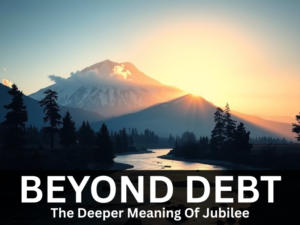Spirited Reflection: Bread for the Journey

After the crucifixion, and unaware of his resurrection, two of Jesus’ disciples are walking on the road to Emmaus, talking about the awful events that had occurred in Jerusalem. They meet a stranger who is unaware of what has happened and they are surprised at his lack of knowledge. As the day is getting late, they invite him to join them for the evening. They sit down to have something to eat, and in the taking, blessing and breaking of the bread, they recognise the stranger as the risen Jesus (Luke 24:13-35).
Why is it that they don’t recognise him before? What is it about sharing bread together that opens their eyes? Is it because the breaking of the bread reminds them of the Last Supper? Does Jesus speak other words perhaps that are not written down? Could it be that as they sat, sharing a meal together, they became more ‘present’ to one another and more aware? Then the feeling of “our hearts burning within us while he was talking to us on the road” was understood as the presence of God?
There is much rich theological discussion around the meaning of bread in the Bible: God provides manna in the desert; Jesus tells the disciples, “You give them something to eat” when the thousands of people listening to his teaching became hungry; and later, knowing what was going to happen to him, Jesus took bread, broke it, gave thanks, and shared it as his body with his disciples in the Last Supper, an act we continue in the Eucharist.
A fascinating insight about the meaning of bread in our lives and relationship with God is in the Lord’s Prayer. In his doctoral research considering the Lord’s Prayer and its scriptural context, Fr Sylvester David OMI, a priest and former president of St Joseph’s Theological Institute in South Africa, examined its structure. One thing he revealed is that, according to the culture and way it was written, the prayer prioritizes things differently than a direct reading from beginning to end might suggest. In fact, the climax of the Lord’s Prayer is at the centre of the prayer – “Give us this day our daily bread”. From this everything else in the passage radiates and must be understood.
Bread is good news
In the time of Jesus, as today, in a context where access to food was precarious, having bread – practical, nourishing and life sustaining – is good news! It was and is very much a tangible sign to us that we matter, it is a necessity for life, and a way we feel that God is with us. When there is no food, or lack of access to good food and nutrition because of injustice, high prices, greed, or natural disaster, there is absence, longing and death. In Canada, there is plenty of food, but access to nutritious food is precarious to many who can’t afford it. For my relatives in Zimbabwe and many others in southern Africa, a long drought has been followed by intense rains and flooding. In a subsistence economy, with homes and crops washed away, many in the district have no food. People must help each other.
In having access to food, in sharing a meal together, in breaking bread alone or together, we are engaged in something practical and even mundane, which at the same time points beyond itself to reveal God. Like the disciples on the road to Emmaus, in the breaking of bread, “You are made known to us”.
Dr Karen Buckenham is a South African and Canadian theologian, activist and writer, living in the Niagara area. She is currently working on a book on migration and theology in South Africa. She and her husband are parents to two teenage boys.












